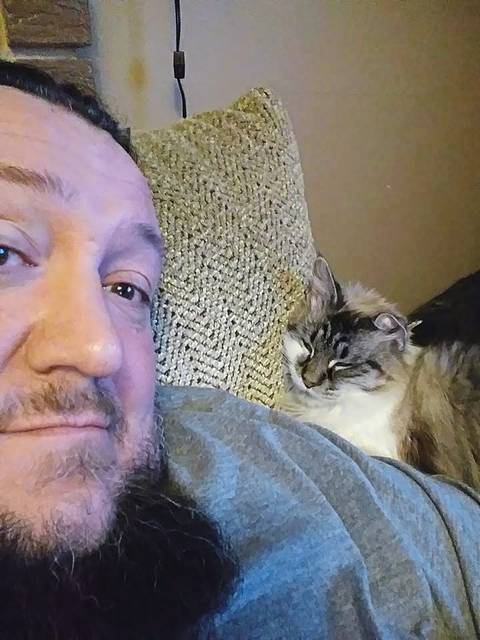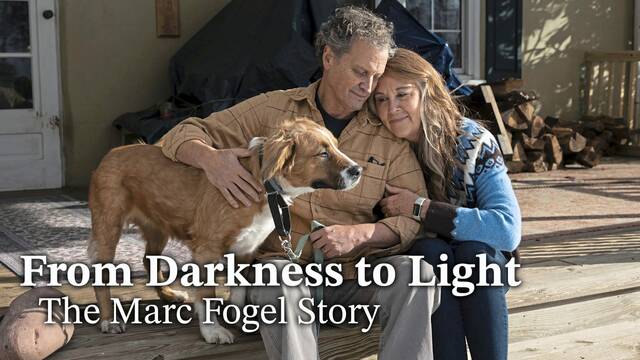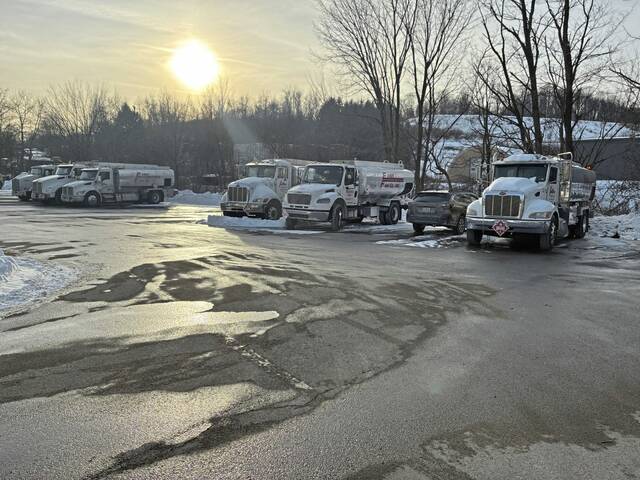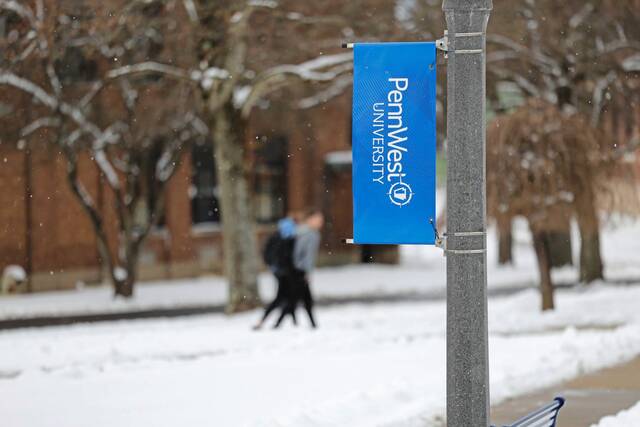Rebecca Taquino says she knows it’s difficult to stay home, to forgo seeing family and friends, to sit still as spring fever sets in.
It’s an inconvenience, she knows.
But it’s not like planning your husband’s funeral.
Devin Taquino, of Donora, died April 10, a little more than two weeks after he was admitted to the hospital having tested positive for covid-19.
He was 47. He had no underlying health conditions, Rebecca said.
“It’s not for the rest of your life. It’s for several weeks,” she said of the state’s stay-at-home order and social-distancing efforts. “It’s inconvenient and feels like it’s impossible.
“But trying to plan your husband’s funeral from a distance, and your family has to maintain their distance. That’s a lot harder than sitting at home with your kids.”
‘He wasn’t acting right’
The first small signs — signs Rebecca never imagined would lead where they did — began for Devin on a Friday night, March 20. It started with an upset stomach and a fever. Devin was scheduled to work extra hours the next day, but the symptoms caused him to call off.
By Monday he felt fine, Rebecca said. He had a cough but was able to go to work at the TTEC call center in Uniontown. He even logged overtime. Rebecca works the midnight shift at personal care home, so they didn’t see each other the following day. She said she didn’t know he had developed a cough.
He made it through an hour of work Tuesday, March 24, before he came home with more stomach problems. He proceeded to sleep for 16 hours.
Neither of them got ill often, she said, and it was out of character for Devin to sleep so long.
He was a self-professed video-game nerd, she said, and spent hours listening to music and producing synthesizer music. He loved the “Resident Evil” franchise and ran a fan website dedicated to the game.
“I knew he wasn’t well because he wasn’t acting right,” she said.
Rebecca stayed home from work Wednesday in case he was sick — and in case she was sick. Better safe than sorry, she thought.
Still, neither was overly concerned.
‘He’s going to be fine’
That Wednesday, March 25, they went to an urgent care center in Washington. Both tested negative for the flu, she said, but her husband’s blood-oxygen levels wouldn’t rise above the mid-80s — the normal level is mid-90s. Blood-oxygen levels that low signify that at least some cells in the body are not receiving adequate oxygen.
The staff at the urgent care center wanted to call an ambulance to take Devin to the hospital, but the Taquinos declined, worried about the cost.
“We thought, ‘We don’t have the money to pay for that, and he’s fine. He’s going to be fine, and we’ll just drive him to the hospital,’ ” she said.
Once there, they were stopped in the parking lot.
Before they could walk to the door of Mon-Valley Hospital’s emergency room, staff stopped them and told Rebecca that only Devin could go in. She and her sister watched him walk into the hospital.
“That was the last time we saw him,” Rebecca said.
Devin called later that day to say he had been diagnosed with pneumonia and was waiting for his covid-19 test results. Those results came back positive the next day, Thursday, March 26, and he was moved to intensive care.
From there, Rebecca said, it was a nightmarish spiral.
Devin’s blood-oxygen levels wouldn’t stay elevated. The littlest movement — even talking on the phone — would plunge the levels even lower. A series of breathing machines didn’t help, and he was transferred March 31 to West Penn Hospital in Pittsburgh’s Bloomfield neighborhood.
The doctors told Rebecca that her husband was going into kidney failure. Devin’s initial blood work from a few days earlier, they said, showed normal kidney function.
The spiral, she said, worsened. Devin’s blood kept clotting and clogging the dialysis machine.
Rebecca said a doctor eventually called and explained what likely was going to happen.
“They needed my permission to not do CPR on him,” she said. When CPR is performed in a hospital, a patient is given a cocktail of drugs to help the heart and blood pressure, she was told. Devin already was maxed out on those drugs.
“There was nothing left to give him,” Rebecca said. “Once his heart finally stopped, there wouldn’t be any point.”
She said giving that permission is one of the hardest things she’s ever done.
The doctor said Devin’s pulse kept slipping and “it wouldn’t be long.” A half-hour later he was dead.
“I had time to sit and think about it,” she said. “I tried not to know, but I knew. I knew about 24 hours beforehand.”
She asked the doctor whether an autopsy would be performed. It would be for the greater good, she thought, if Devin could help doctors glean information about the deadly domino effect that began with the virus.
“I’m sitting here afterward thinking, ‘His doctor probably thinks I’m a freak’ because when she called, the first thing I asked her was if they were going to perform an autopsy,” she said.
‘This doesn’t happen to someone his age’
Rebecca said she never thought that when she dropped her husband at the hospital that day it would be the last time she saw him.
“I thought he would be home that night,” she said.
Even as things became more dire, she said, she never thought her husband would die.
When he called and said he had pneumonia, she thought he would be home the next day — the day after that, at the latest. And when he called to say he had tested positive for covid-19, her thoughts were along the lines of “that sucks, but you’re still going to be fine,” she said. A ventilator — that would never happen.
“And then it did,” she said. “We were still in that mindset that he was going to come home in a few days because this doesn’t happen to someone his age. This doesn’t happen to someone without the laundry list of (at-risk) conditions.”
But it did.
That’s why the spotlight-shy mother of three has told her story — and Devin’s — more times than she can count since his death.
“I’ve talked more in the last few weeks than I have in my entire life,” she said. “I’ve cried more than I have in my entire life.”
She has been quarantined at home, she said, as she and her oldest son, 25-year-old Jonathon, both tested positive. They were tested because they had symptoms, though her other two children — Madyline, 18, and Kristofer, 16 have not had symptoms and have not been tested.
She said she’s still terrified — of ending up like Devin, of leaving her children orphaned — but she’s also frustrated by the number of people carrying on like normal. She said many are being naïve by believing they’re safe or that the virus is no big deal.
“I understand their thought process,” she said, “because we had their thought process.”











